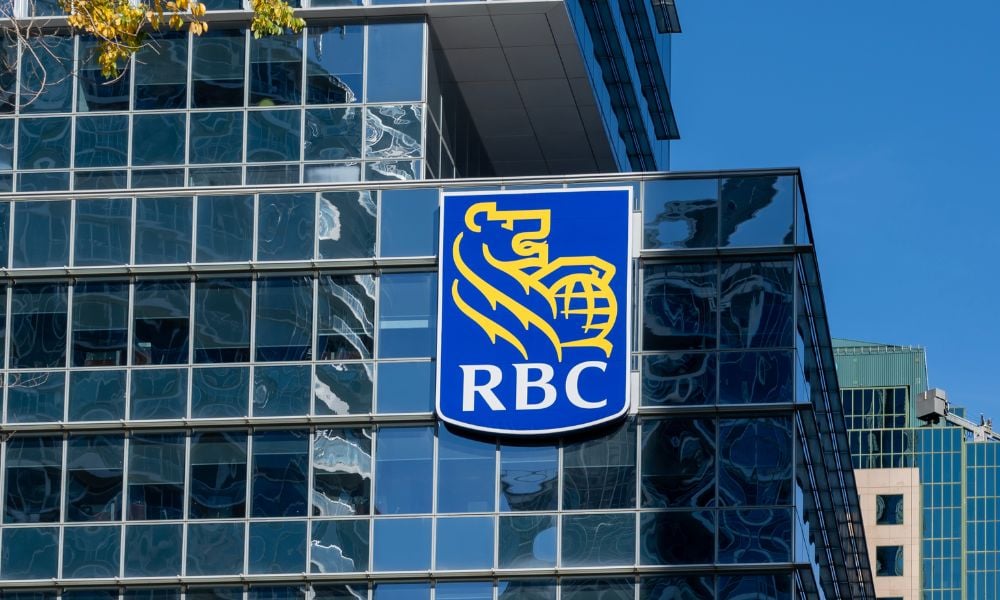As RBC absorbs HSBC staff, confusion over roles and competition for jobs sparks concerns of layoffs

Some Royal Bank of Canada (RBC) employees, brought in through the acquisition of HSBC Canada, are concerned about losing their jobs as a six-month job guarantee nears its end this month, as per Reuters.
Six sources familiar with the situation revealed that the uncertainty follows RBC's agreement with the government to retain about 3,000 corporate HSBC staff as part of the $13.4bn acquisition, which was finalized in March.
RBC informed Reuters that they had placed nearly 80 percent of HSBC Canada's former 4,500 employees, which includes corporate and retail workers. This equates to roughly 3,600 employees.
However, some former HSBC staff have expressed concern over the lack of clarity regarding their daily responsibilities and the looming threat of layoffs. Six employees, speaking anonymously due to the job insecurity, noted this uncertainty.
In response, RBC stated it had introduced “dedicated resources” to assist new joiners, slowed hiring, and kept roles open while awaiting approval of the deal.
“We've also been transparent with employees, letting them know that those who are not in roles at the end of the six-month period will be provided with a severance package well beyond any legal requirement,” an RBC spokesperson said in an email statement.
Canadian Finance Minister Chrystia Freeland approved the acquisition in December, with one condition being that RBC must retain HSBC's front-line banking and financial advisors for at least two years.
The agreement also requires RBC to offer voluntary departure packages to any HSBC employees wishing to leave.
During a December town hall, RBC CEO Dave McKay reassured HSBC Canada staff, stating, “You should not worry. We have jobs, we have lots of jobs.” He emphasized the opportunities available and aimed to dispel worries employees might have had over the holiday season.
Despite McKay’s assurances, about 3,000 HSBC corporate employees who started in April have faced challenges at their new roles. Four sources reported confusion regarding their teams and duties, noting that their roles often overlapped with existing RBC employees.
Three of those sources mentioned they had been asked to apply for internal positions, competing with both RBC staff and external candidates. Additionally, three of the sources received more junior roles, despite decades of experience.
All six sources said RBC encouraged them to explore job opportunities within the bank. One individual secured a role, two were asked to move to different divisions, and four reported being left without work after logging into their systems.
Although many employees have faced difficulties, others have found the transition smoother. A former HSBC leader, now with RBC, shared that several team members had successfully found roles, while some senior staff opted for voluntary packages for personal reasons.
This leader, discussing personnel matters, declined to be identified.
Still, two former HSBC managers said they remain unclear about their teams' futures, even after discussions with RBC counterparts.
An August LinkedIn poll of a 1,000-member HSBC Canada alumni group revealed 45 percent were still seeking internal roles at RBC, 19 percent had applied for voluntary departure agreements, and 32 percent had secured roles.
A similar poll in July showed 33 percent were looking for internal positions, 24 percent had left RBC, and 19 percent had permanent jobs. Reuters could not confirm whether all poll participants were RBC employees.
Toronto-based employment lawyer Lior Samfiru reported that his team had been contacted by former HSBC employees concerned about losing their jobs.
He stated, “It would have been very naive for anyone to think that there's not going to be significant duplication and a significant loss of jobs over time because of this merger.” He added that the competition for jobs is driving anxiety.
RBC expects a significant portion of the $740m in cost synergies targeted from the acquisition to materialize between October 2024 and March 2025, according to its August presentation to investors.
These savings are projected to come from shared services, functions, and IT in the first year, followed by distribution and product support in the second.
Veritas Investment Research analyst Nigel D’Souza commented that RBC might take a restructuring charge next quarter, as cuts to its back-office staff begin.
He noted that while reducing headcount may not be favourable from a public perspective, “if you can't execute on cost synergies, that would be viewed very poorly... they need to hit those cost synergy targets” from a shareholder standpoint.



